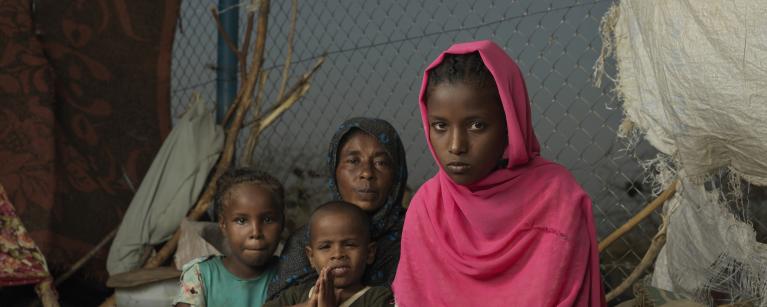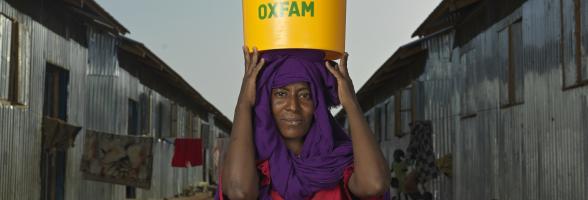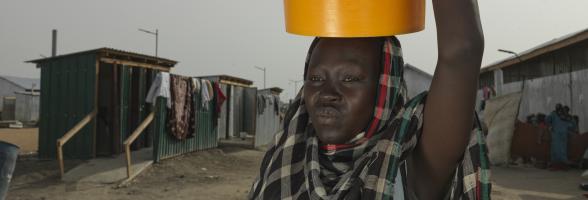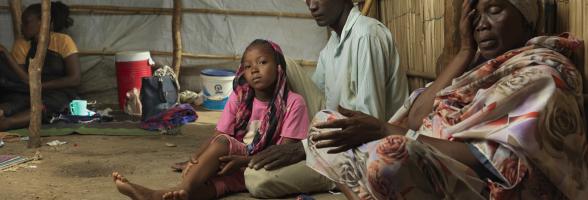Asia, fourteen years old, has aspirations to become a doctor someday. "When I’m older, I want to be a doctor and take diseases away from people,” she says. Today, Asia is out of school. All of the schools are closed in Sudan, due to a civil war with no end in sight. As of June 2024, this is her sixth month being refugee at a busy transit center located in Renk, South Sudan.
This is Asia’s story, one that showcases the reality of war and how it affects a young girl.
Asia is from Khartoum, the vibrant capital city of Sudan. In Khartoum, she lived with her mother and younger siblings, with her extended family living nearby. Growing up she had no father figure in her life. Her biological father passed away when she was just a baby. Asia’s mother, Suat, keeps the memory of her father alive for the children. Life in Khartoum was very comfortable for the family.
To fill her days Asia loved to play with her friends or cousins, watch cartoons, and chat with people on the phone. Most of all, Asia enjoyed attending school to learn. “Education is important, I’m teaching myself English. I miss school too much,” says Asia. She continues by singing the English alphabet.
“My daughter has a good heart. I struggled to make sure my daughter got a good education,” expresses Suat, who worked as a cleaner in a school to support Asia.
The Sudan Civil War between two rival factions of the military government broke out on the 15th of April, 2023 in Khartoum. In Asia’s eye, the city that granted her a happy childhood suddenly turned into a nightmare.
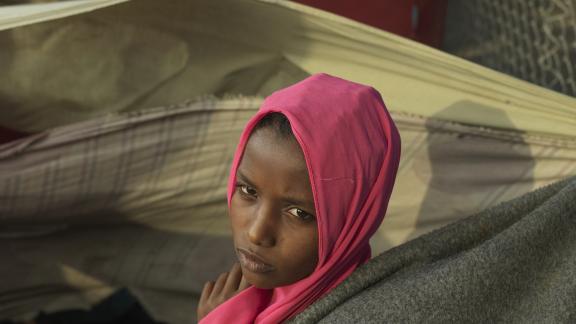
“I had to sleep under the bed because of bombs. The noise of bullets and bombs was too much and scared me a lot,” she says crying. Her family endured the war in the capital city for a couple of months.
Limited access to clean water, and food, and living without electricity amid chaos pushed Asia’s mother to make the hard decision to leave their beloved city. The decision was not easy to make as a widowed mother, knowing the road ahead was dangerous.
Arrangements to travel to Renk in neighbouring South Sudan were made. The family traveled with Asia’s aunt and cousins, leaving behind close relatives including Asia’s grandmother. Parting with their loved ones was hard, especially for Asia’s mother. They left all their belongings behind, except for a small change of clothes.
The journey from Khartoum to Renk took three days by public transport. The transit center in Renk is a sheltered area for families to take a pause or wait to be registered before traveling to their next destination. People normally stay at the transit center for a couple of weeks. Sometimes, displaced families like Asia’s remain as they do not want to leave for the unknown and settle down somewhere further from Sudan.
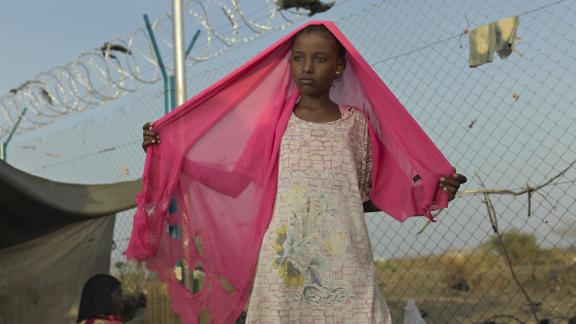
“There are no beds, the family sleeps on paper-thin mats on the floor. Sleeping outside on the floor makes Asia and her family susceptible to malaria, snakes, and scorpions. The conditions for them are dangerous, especially with the delayed rainy season approaching.
Days waiting in Renk feel never-ending for Asia. Day after day there is very little to do. Every Tuesday and Thursday, she loves to visit a Women’s Center which is open twice a week. The Women’s Center has helped her gain some inspiration and confidence in herself.
Despite circumstances, Asia feels empowered to serve humanity someday. She holds no bitterness in her heart for the hate crimes she has seen or experienced but only wishes everyone could live as one. If her father could see her now, he would be proud of his resilient daughter.
Oxfam is not operating in Sudan but is currently supporting people fleeing this conflict to neighboring countries including South Sudan and Chad where millions have sought refuge by providing clean water, cash, and food to refugees and returnees in these neighboring countries.
The humanitarian situation in South Sudan remains dire with at least 9.4 million people in urgent need of humanitarian assistance, 7.8 million of them require immediate food aid.
